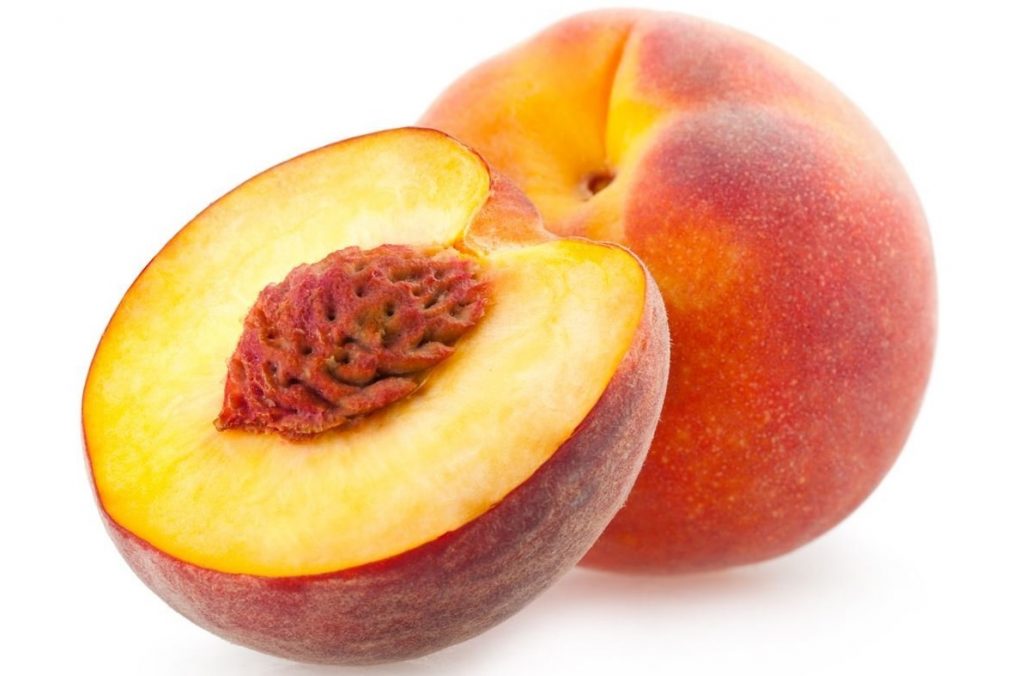Peach tree is native to China, where it was first produced. It’s a deciduous tree bearing an edible and juice fruit called peach.

The peach is a species of the genus Prunus. The species name persica is named after its widespread cultivation in Persia; from there it was transplanted to Europe.
The fruit contains yellow or whitish flesh, a tender fragrance, and a skin that is like velvet. The flesh is very soft and easily bruised in some varieties, but firm in some commercial cultivars, especially when unriped. The single, large seed is maroon, oval-shaped and around 1.3–2 cm long.
Peach Nutritional Information:
Apart from other nutrients, peach is extremely rich in vitamin A and potassium which rank them very high in nutritional value.
Peaches are quite low in calories; a cup of sliced peaches contains only 60 calories. Water is comprised of 80% of its ingredients; they have a large amount of fiber 0.6g per 100gm. Vitamin A is in the form of beta carotene as well as vitamin C.
Peaches are also very rich in iron and potassium. Lutein and zeaxanthin, 2 carotenoids found in peaches help guard against blindness caused by age-related macular degeneration.
Peach Health Benefits:
Having great taste, peaches are low in calories (100 g just provide 39 calories) and contain no saturated fats.
- Fresh peaches are an amazing source of antioxidant vitamin C. Vitamin-C has anti-oxidant reactions and is needed for building connective tissue in the body. Consumption of foods rich in vitamin C helps the body develop resistance against infectious agents and help scavenge harmful free radicals.
- Fresh peaches are also a moderate source of vitamin A and ß-carotene. ß-carotene is a pro-vitamin, which converts into vitamin A in the body. Vitamin A is important for vision and also for maintaining healthy mucus membranes and skin. Consumption of natural fruits rich in vitamin A is known to offer protection from lung and oral cavity cancers.
- They are rich in many vital minerals such as potassium, fluoride, and iron. Iron is required for red blood cell formation. Fluoride is a component of bones and teeth and is important for the prevention of dental caries. Potassium is an important component of cell and body fluids that help regulate heart rate and blood pressure.
- Peaches contain many health-promoting flavonoid polyphenolic antioxidants such as lutein, zeaxanthin, and ß-cryptoxanthin. These compounds help act as protective scavengers against aging and various disease process.
- Peach is a very good source of dietary fiber, The dose of fiber in peaches acts as a gentle laxative, aids digestion, and may also help combat cancer.